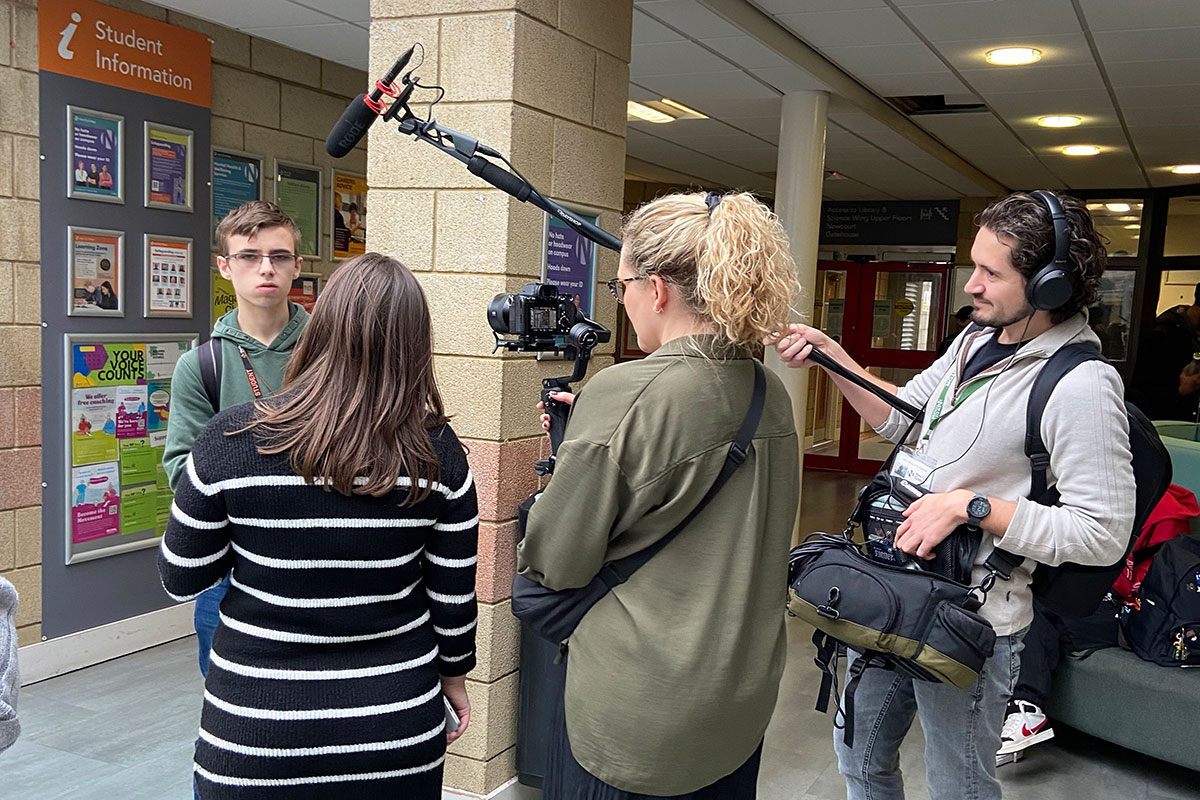Universities call on government to back world-leading UK research and innovation ahead of autumn statement

Ahead of the autumn statement on 17 November, Universities UK (UUK) is urging the Chancellor to recommit to uplifting investment on research and development (R&D). This long-term investment will ensure that universities can continue to support growth and prosperity across the whole of the UK.
UUK has joined with more than 100 business organisations, education leaders and individual researchers in writing to the Chancellor urging the government not to cut R&D funding. This funding is the engine of growth, enabling universities to attract investment and talent, make world-leading discoveries, generate knowledge, and create and nurture new, innovative businesses and jobs across the UK.
This call follows UUK’s recently published report ‘Our Universities: Generating Growth and Opportunity’ highlighting the ways in which universities can play a bigger role in generating economic growth by supporting jobs and prosperity, boosting skills and opportunities, and building pride in place and local communities. University research excellence is also well-distributed geographically across the whole of the UK, with recent assessments showing over 80% of submitted research activity to be world-leading or internationally excellent.
University-led research and infrastructure lays the foundation for new innovations, and universities are directly involved in the creation of new businesses as well as future-facing jobs:
- Despite the pandemic, in 2020/21 alone, 4,936 new businesses emerged from universities.
- Businesses that emerged from universities in 2020/21 employed 95,503 people and attracted over £7 billion of external investment.
- In the same period, these firms had an estimated turnover of nearly £13 billion.
- It is also estimated that university research and innovation will lead to an additional 20,000 new businesses in the next 5 years.
- In 2020-21 alone, universities had 75,500 contracts providing businesses with consultancy, and 17,000 to provide facilities and equipment, to develop innovative products and services.
Investment in R&D supports universities to work with local and national businesses through consultancy or contract research, providing specialist advice and access to the latest facilities and equipment to develop innovative products.
This fiscal event also comes at a time of continued uncertainty over the UK’s association to Horizon Europe, and EU structural funds coming to an end this year. We are urging government to secure association to Horizon Europe and protect the budget set aside to fund alternatives and for urgent action to avoid the loss of hundreds of vital growth-boosting research and innovation projects at risk, which will see their EU funding end this year.
Following the last austerity era, there were suggestions that the UK’s research output may have lost momentum in terms of international competitiveness. We do not want to lose our momentum again at a time when growth is a key strategic priority.
Public funding for university research and innovation is key to driving long-term economic growth and prosperity across the UK. Certainty around public funding will also help leverage the private investment needed to achieve the government’s ambition. Ensuring this funding is stable and long-term creates the conditions for effective collaboration and high-risk innovation activities leading to transformational breakthroughs – such as the Covid-19 vaccine.
Professor Sir Jonathan Van Tam, Pro Vice-Chancellor for Medicine and Health Sciences at the University of Nottingham said:
“Universities supported by increased investment in research will continue to generate national growth, boost local economies, and improve lives. The world-leading development of the UK’s Covid-19 vaccination programme would simply not have been possible without university innovation backed by significant public investment. Only a stable funding environment for R&D can replicate our global success in tackling the pandemic for other critical fields in public health.”
Alice Roberts, Professor of Public Engagement in Science at the University of Birmingham, author and broadcaster said:
“Universities are knowledge generators. And that knowledge is incredibly important – it has the potential to improve and even save lives. Every day, university researchers are working on expanding our knowledge and solving problems – from scientists looking at solutions to climate change or to humanities researchers deepening our understanding of current and past societies.
“The expert knowledge that is generated and shared by universities gives us the tools to meet the challenges facing us – to find the best possible solutions.
“To do this work, universities rely on government support. It’s vital that the government sticks to its promises on funding for Research & Development.”
Professor Paul Boyle, Vice-Chancellor of Swansea University and Chair of the Universities UK Research and Innovation Policy Network said:
“If the UK wants to keep pace with its competitors, it needs to take R&D seriously. The UK’s researchers and innovators make an invaluable contribution to our economy, and at a time of economic pain, this isn’t the time to take the rug out from under their feet.
“Innovation happens when universities and businesses work together – developing the products of the future and creating high-skilled jobs. This needs to be underpinned by a stable, supportive funding environment.”
Hetan Shah, Chief Executive of the British Academy said:
“Investment in research and innovation plays a critical role in delivering prosperity, health and wealth for the nation. With so many challenges facing us, it is vital that the government does all it can to support UK research and innovation, backing the full breadth and versatility of talent across all of the disciplines.”
Professor Sarah Main, Executive Director, Campaign for Science and Engineering (CaSE) said:
“The UK’s incredible capability in research and innovation is a magnet for talent and a driver for growth. We hear from businesses that the strength of R&D and our great universities are key factors in making the UK a place they want to invest. Now is the time for the Government to lead with R&D to deliver growth, wellbeing and prosperity.”
Universities support growth across the whole of the UK in a range of ways. Investment in foundational research, and research infrastructure, is crucial in developing the innovative products and services, that drive new businesses and good jobs and in turn leads to economic growth. More flexible, Quality Related (QR) funding provides the UK universities carrying out the most world-leading and internationally excellent research with a guaranteed income to carry out innovative research, without the bureaucracy of periodic proposals for funding.
Examples of where university research and innovation directly translates into growth and productivity:
University of Leicester – Space Park Leicester
Space Park Leicester is a world-leading cluster for innovative research, enterprise and education in Space and Earth observation. It was formed in collaboration with the University of Leicester, industry partners and the local community. It is forecast to create 2,500 jobs and provide £750m gross value added (GVA) to the UK economy.
University of Dundee – Biomedical Cluster project
The Biomedical Cluster will build on Dundee’s existing expertise in biomedical sciences with an innovation hub to house spinout companies, and a multidisciplinary R&D centre to develop innovative and disruptive technologies for the healthcare industry. With initial funding of £25m from the Scottish Government, it is predicted that the cluster will bring £190m Net Public Value (NPV) to the local economy and 800 new biomedical jobs by 2053.
University of Hertfordshire – Hertfordshire Science Partnership
The Hertfordshire Science Partnership is an innovative collaboration between the University of Hertfordshire and Hertfordshire Local Enterprise Partnership with a focus on supporting small and medium-sized enterprises (SMEs). It leverages the state-of-the-art facilities and academic expertise at the university to boost the dynamic agri-technology and life sciences sector in Hertfordshire. So far, the partnership has brought eight new products to market, established 20 research contracts giving local SMEs access to the university’s facilities and expertise, 30 new research collaborations, supported 40 businesses, and helped launch two spin-out companies. The partnership is also delivering training for 30 highly skilled graduate researchers, supporting a pipeline of new talent and vital skills for the local industry workforce.











Responses